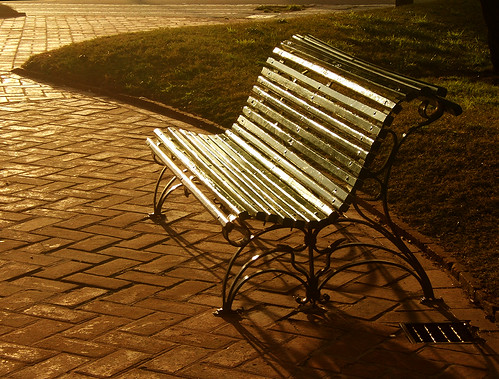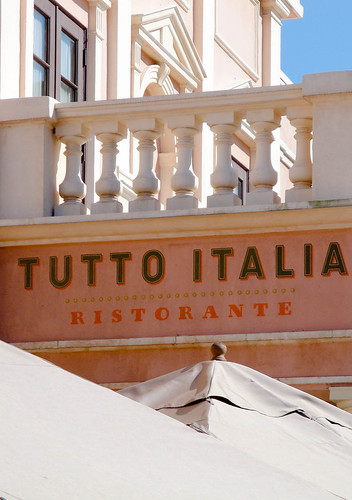
The park across the street from the pharmacy was one of those forced development deals; some EconDev deputy’s idea of a compromise. They worked with city planners in some kind of baseball card version of SimCity: I’ll trade you one tiny strip of grass and anemic tree line for six strip malls and a parking structure in our historic downtown, that kind of thing. Ken sat on his bench in the miserable little park and stared at the building, sneering at the painted facade the color of vomited hot dogs, and counted customers.
The padding of his buttocks had worn thin, like a pair of pants he couldn’t bear to throw out and so had weathered away any once-held utility. The bones of his hips ground against the painted slats—green, of course—and he hated everything. His tricycle was parked nearby underneath a shadeless tree, too newly planted to even stand on its own without the support of wooden crutches and rubber lashes. There were no leaves to keep the chrome handlebars from heating in the glare, there was no security provided by the flimsy chain lock (manufacturer’s provided combination: 1-2-3-4). The vehicle was plodding and uncomfortable to ride but beloved for its single provision: freedom.
Ken settled a curving pipe between his long mustaches and lit it with a match. His customer count reached 75 and he checked his watch while the hot summer wind threatened the light of his pipe. Eight forty-nine and Tim’s Discount Pharmacy had been open for under an hour, currently averaging more than one customer per minute.
There came a clarity with old age, a stripping down of mental tartar, revealing the inconsequentiality of sports, politics, news cycles, social engagement, and leisure. It rendered each of them vaporous and easily waved away with a gnarled hand. What remained was the fleeting bliss of family, the inevitability of oblivion, and the sweet allure of perceived injustice. It was this last that brought Ken to the park each day for the past two months, counting customers, tabulating data and biding time.




